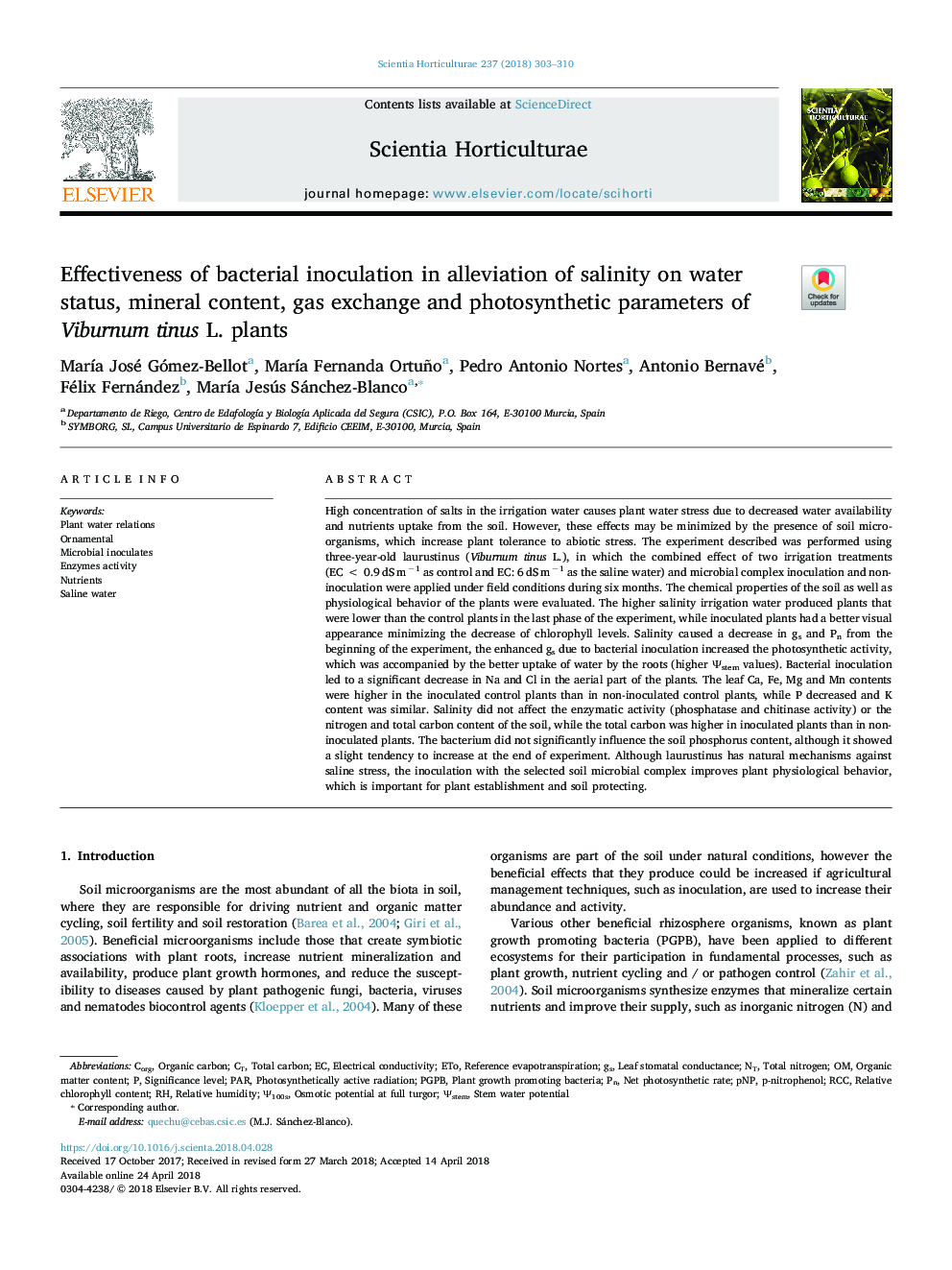| Article ID | Journal | Published Year | Pages | File Type |
|---|---|---|---|---|
| 8892596 | Scientia Horticulturae | 2018 | 8 Pages |
Abstract
High concentration of salts in the irrigation water causes plant water stress due to decreased water availability and nutrients uptake from the soil. However, these effects may be minimized by the presence of soil microorganisms, which increase plant tolerance to abiotic stress. The experiment described was performed using three-year-old laurustinus (Viburnum tinus L.), in which the combined effect of two irrigation treatments (ECâ¯<â¯0.9â¯dSâ¯mâ1 as control and EC: 6â¯dSâ¯mâ1 as the saline water) and microbial complex inoculation and non-inoculation were applied under field conditions during six months. The chemical properties of the soil as well as physiological behavior of the plants were evaluated. The higher salinity irrigation water produced plants that were lower than the control plants in the last phase of the experiment, while inoculated plants had a better visual appearance minimizing the decrease of chlorophyll levels. Salinity caused a decrease in gs and Pn from the beginning of the experiment, the enhanced gs due to bacterial inoculation increased the photosynthetic activity, which was accompanied by the better uptake of water by the roots (higher Ψstem values). Bacterial inoculation led to a significant decrease in Na and Cl in the aerial part of the plants. The leaf Ca, Fe, Mg and Mn contents were higher in the inoculated control plants than in non-inoculated control plants, while P decreased and K content was similar. Salinity did not affect the enzymatic activity (phosphatase and chitinase activity) or the nitrogen and total carbon content of the soil, while the total carbon was higher in inoculated plants than in non-inoculated plants. The bacterium did not significantly influence the soil phosphorus content, although it showed a slight tendency to increase at the end of experiment. Although laurustinus has natural mechanisms against saline stress, the inoculation with the selected soil microbial complex improves plant physiological behavior, which is important for plant establishment and soil protecting.
Keywords
osmotic potential at full turgorEToΨstemRCCPGPBPNPp-NitrophenolSaline waterPlant growth promoting bacteriaPhotosynthetically active radiationreference evapotranspirationOrnamentalParElectrical conductivityRelative humidityPlant water relationsSignificance levelEnzymes activityOrganic matter contentNutrientsnet photosynthetic ratetotal nitrogenLeaf stomatal conductanceStem water potentialOrganic carbontotal carbonCorg
Related Topics
Life Sciences
Agricultural and Biological Sciences
Horticulture
Authors
MarÃa José Gómez-Bellot, MarÃa Fernanda Ortuño, Pedro Antonio Nortes, Antonio Bernavé, Félix Fernández, MarÃa Jesús Sánchez-Blanco,
